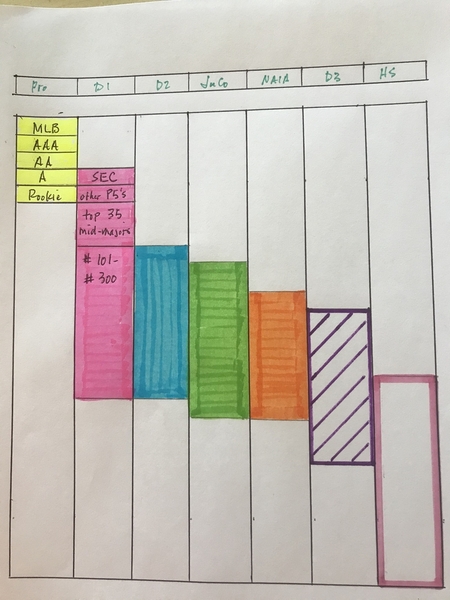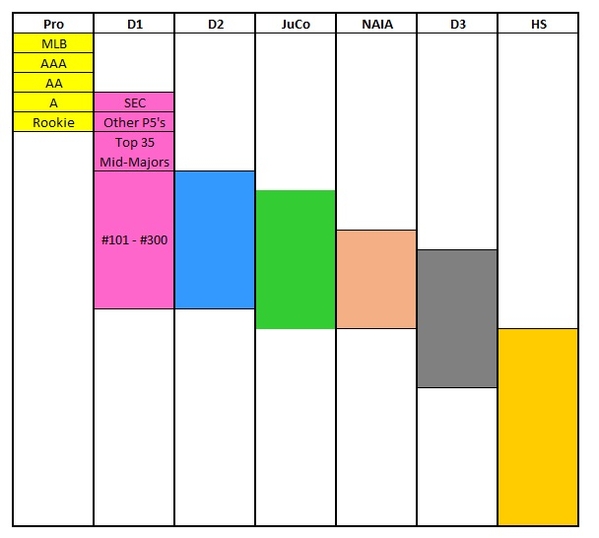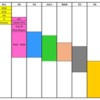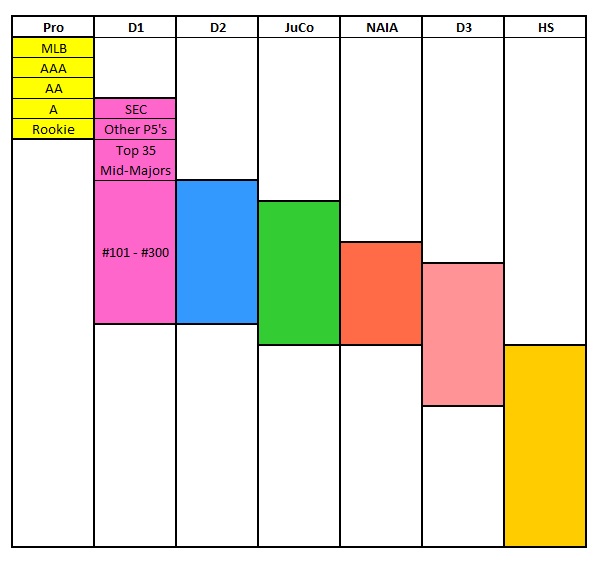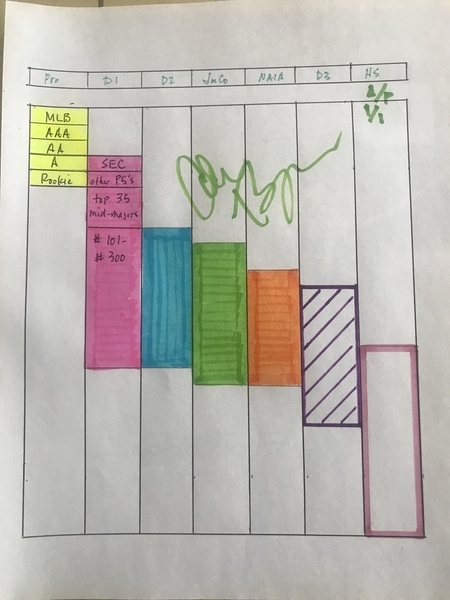So I’m watching college ball on tv, got me thinking. What separates, d1, d2 and d3 players? Is it who they played for on their summer teams (who has the connections and who doesn’t)? Is it all things equal but one runs a 6.6 and one runs a 7.0? Is it one can hit 95 and the other ones can only hit 90? Is there such a thing as a “bad” college player?
second part; do some of these kids who bat 5,6,7,8,9 ever make the mibl? I guess the question should be, what separates a stud on d1 versus a draft pick?



